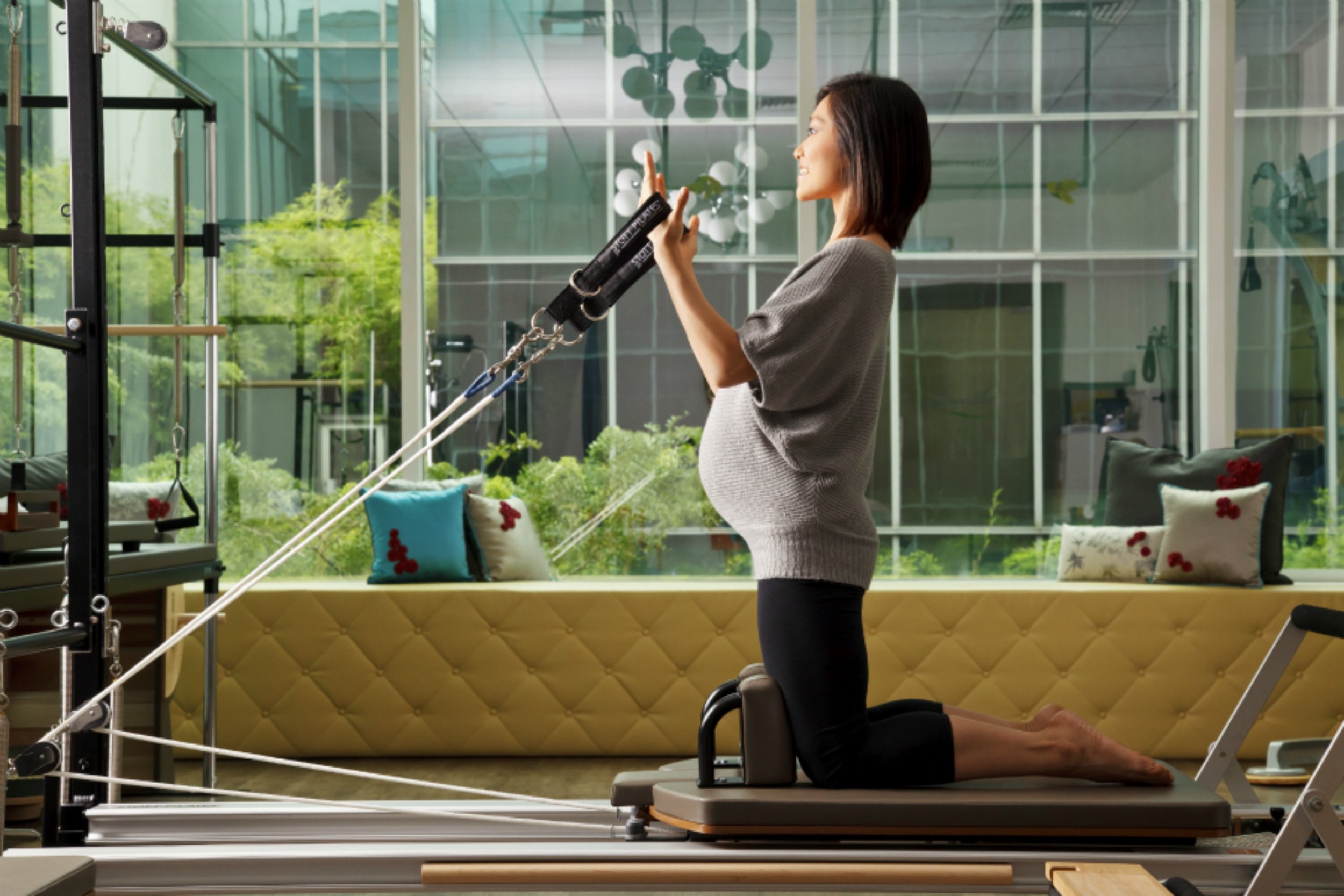Prenatal Pilates Your Training Guide
Giving birth can be the biggest workout of your life. They say that giving birth can burn more calories than running a marathon, so you need to be ready.
Pilates is an effective and impactful prenatal exercise that supports the natural process of a growing belly and addresses the potential weaknesses during and after pregnancy that can leave women vulnerable to injury. The upshot is, there are safe and effective Pilates exercises that support women during pregnancy!
Strengthen The Core While The Pregnant Belly Grows
Back pain is the most common complaint among pregnant women. As the baby grows and the body gets heavier, the extra strain will be put on the back so keeping your core muscles strong during pregnancy is a must. This means learning how to engage the core muscles, which include the pelvic floor, deep abdominals, diaphragm, and muscles of the back. In addition to supporting the extra weight and protecting the back from injuries and pain, this is also essential for postnatal recovery.
HOWEVER it is recommended to avoid core workouts that involve flexion so say goodbye to sit-ups, roll-ups and teasers for a little while. Flexion is the rounding of the spine forward when sitting or standing or rolling up when lying down. This is not what you want to do when your belly is growing during pregnancy – it is counterintuitive to contract when you should be expanding!
Do Not Overstretch
When a woman is pregnant, her body releases a chemical called relaxin that relaxes the muscles, tendons, and ligaments in the pelvis to allow the baby to emerge. In the second and especially third trimesters, women need to be careful about doing stretches that go beyond their pre-pregnant range of motion. It’s possible to stretch too much and destabilise the joints, particularly in the pelvic area. This is why small Pilates classes or private training is recommended for extra care.
Life Is About Balance
Labour requires a tremendous amount of endurance and stamina, which is why exercising during pregnancy is vital. On the other hand, it’s imperative to remember that moderation is key.
As you approach the third trimester, do not overexert yourself, follow your gut and work out as you wish. If you overwork yourself during pregnancy, this can put a strain on your body and mind. Remember, listen to your body!
Look After The Rest Of Your Body
Maintaining and building strength throughout the whole body is very important. It not only supports the pregnancy but also prepares the body when the baby arrives. Lower body strength helps with carrying and lifting, along with pushing the stroller and picking up the baby while upper body strength is essential for picking up your bundle of joy, lifting baby items and more. General strength and core workouts are important for postural strength and functional movement, but they can also help prepare you for labour … and you are more likely to recover better and faster afterwards.
What Happens After The Baby Arrives?
Remember to keep up the good work postpartum. Postnatal recovery, especially in the first four to five months after birth is very important. New mothers have to work with a Pilates professional to regain inner strength and close diastasis. Always talk to your medical health professional about any concerns you have before starting any new exercise programme.
Bun in the oven? Breathe Pilates has a range of Pre and Post Natal small group classes in Singapore to help you stay strong through and beyond your pregnancy. To learn more, speak to one of our experts via our Contact Us page

